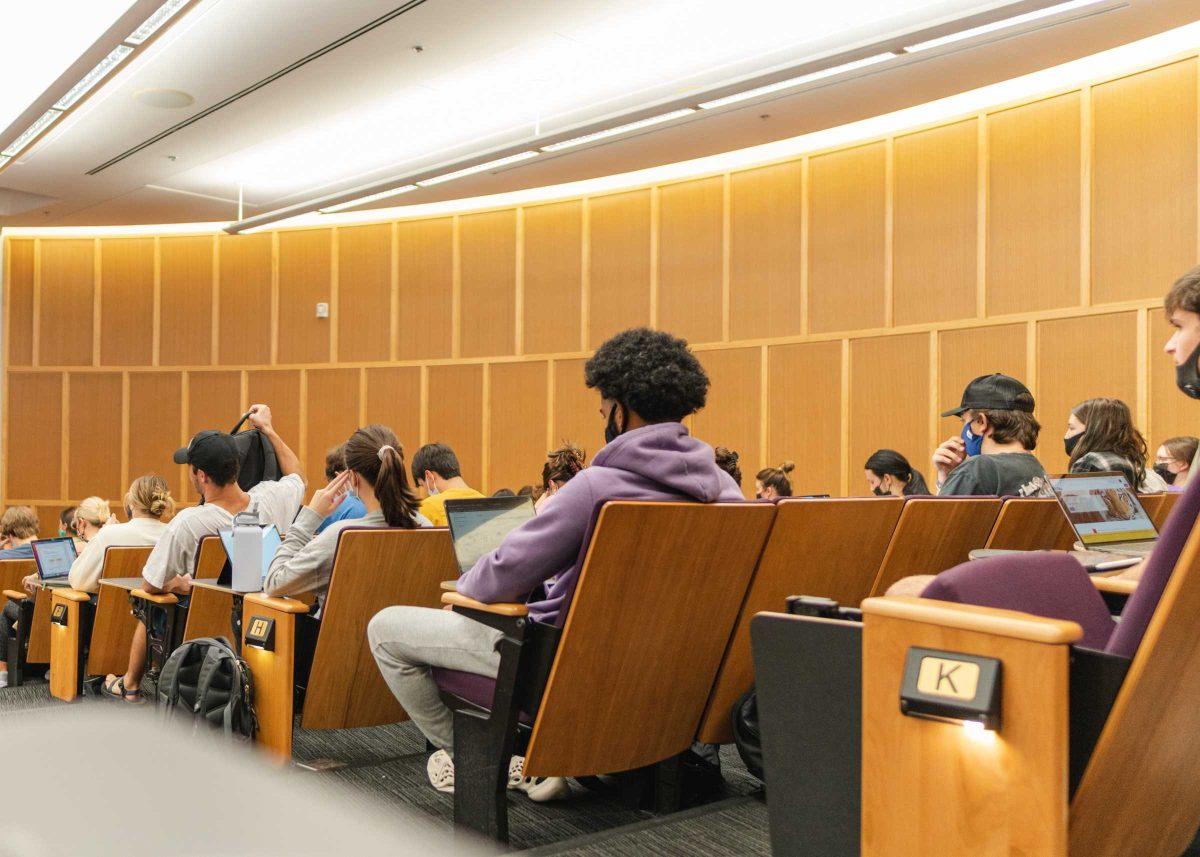As midterms approached, Colby Mitchell found it difficult to juggle his sophomore chemical engineering classes with his social life and extracurriculars.
The stresses of a busy college lifestyle reached an apex when Mitchell had his first exam for one of his more difficult engineering courses and quizzes for several other classes to prepare for. On top of coursework, it was a rehearsal day for Tiger Band.
“All these things pile on and it’s really overwhelming to get yourself through,” he said.
Because he has so much on his plate, Mitchell is forced to let other personal priorities slip by the wayside: cleaning his room, washing the dishes and doing laundry seem like secondary tasks when he’s faced with a mountain of other responsibilities.
Mitchell is not alone in feeling the responsibilities of college life weighing down on him. Across campus, students feel burnout from balancing the pressures of hours of coursework, extracurricular activities and a healthy social life.
An estimated 85% of college students reported feeling overwhelmed by everything they had to do over the course of the school year, while 30% reported this stress as having a negative relationship to their academic performance, according to a 2018 study by the Anxiety & Depression Association of America.
As archival studies graduate student Abbey Weselak finished two of her seven-week-long LSU Online courses after pulling a series of all-nighters to prepare for 3,000-word finals, she felt burned out. The stress that so many other students reported got to her, even after her undergraduate tenure.
“I was taking two core classes that had nothing to do with my major so it was really difficult to be interested in it. It was difficult to get into the swing of writing my papers,” Weselak said. “It was not the best.”
She said going straight from undergrad to graduate schooling without a gap year added to her feelings of stress and burnout.
On top of the accelerated coursework that came with her online graduate classes, Weselak works four days a week as a student worker at the LSU Museum of Art.
It’s important to allot time to keep her mind off the stresses of school and work, at least for a little bit, Weselak said. She has made it a habit to set her Sundays aside to realign herself after working on school work two days a week and working four.
“I really, really need it,” she said. “It’s definitely important to take time to reset. Even if it’s just a thirty minute long bath or doing some yoga, it’s necessary.”
Raime Thibodeaux, director of Mental Health at the Student Health Center, agrees that it is important to allow time to re-center oneself. Sometimes it’s as simple as going to the parade grounds and “spending thirty minutes outside in the sunshine and listening to the birds chirping,” she said.
Thibodeaux expressed the importance of support networks and other methods of care before one seeks professional help for burnout. Among the coping methods she hopes to teach are the importance of getting enough sleep and the value of physical exercise.
“Getting into our physical body is really helpful in getting out of our own head,” she said. “The way to not overthink is to focus on more bodywork.”
Another way to cope with the weight of college stress and burnout is a solid support system of friends and family, Thibodeaux said.
A major cause of anthropology junior Ianthe Davis’ burnout is a lack of social interaction with their friends. Davis found that midterms deprive them of this support system they so desperately need.
“When everyone’s studying, that can’t really happen,” they said.
Despite their burnout being less intense than during freshman year, Davis found that it is still incredibly difficult to process the stress of midterms, especially when their roommate is experiencing the same stress.
Weselak experienced something similar.
Her roommate works a full-time job and her boyfriend is in the senior year of his undergraduate.
“I’ve had the support and love that I need to feel good about this but everyone else has their own problems too,” Weselak said. “It’s kind of hard when I’m struggling, everyone I know is struggling.”
Thibodeaux found a solution to the absence of a support system in prioritization.
She said organizing one’s life into three aspects can also help prioritize and reduce stress that comes from classes and extracurricular activities.
Focusing on one task you have to do, one method of connection between you and your peers and one thing you just enjoy goes a long way in coping with burnout, she said.
For Davis and Mitchell, the thing they enjoy doing that allows them to cope with overwhelming burnout is playing video games.
“I usually play games in which I can just plow through anything like Assassin’s Creed or Kingdom Hearts,” Davis said. “I’d much rather a fun kind of stress that I put myself under other than stress that I have to go through. I can decide when I’ve had enough but I can’t really do that for school.”
Even though he would love to have a good nap every once and a while or to play video games with his friends, Mitchell does feel his professors that assign copious amounts of course work are preparing him for the future.
“Everybody goes through [burnout] to a certain extent,” Mitchell said. “A lot of jobs may push you to your limit. I think [professors] know about it and they’re doing their best to push you through it.”






